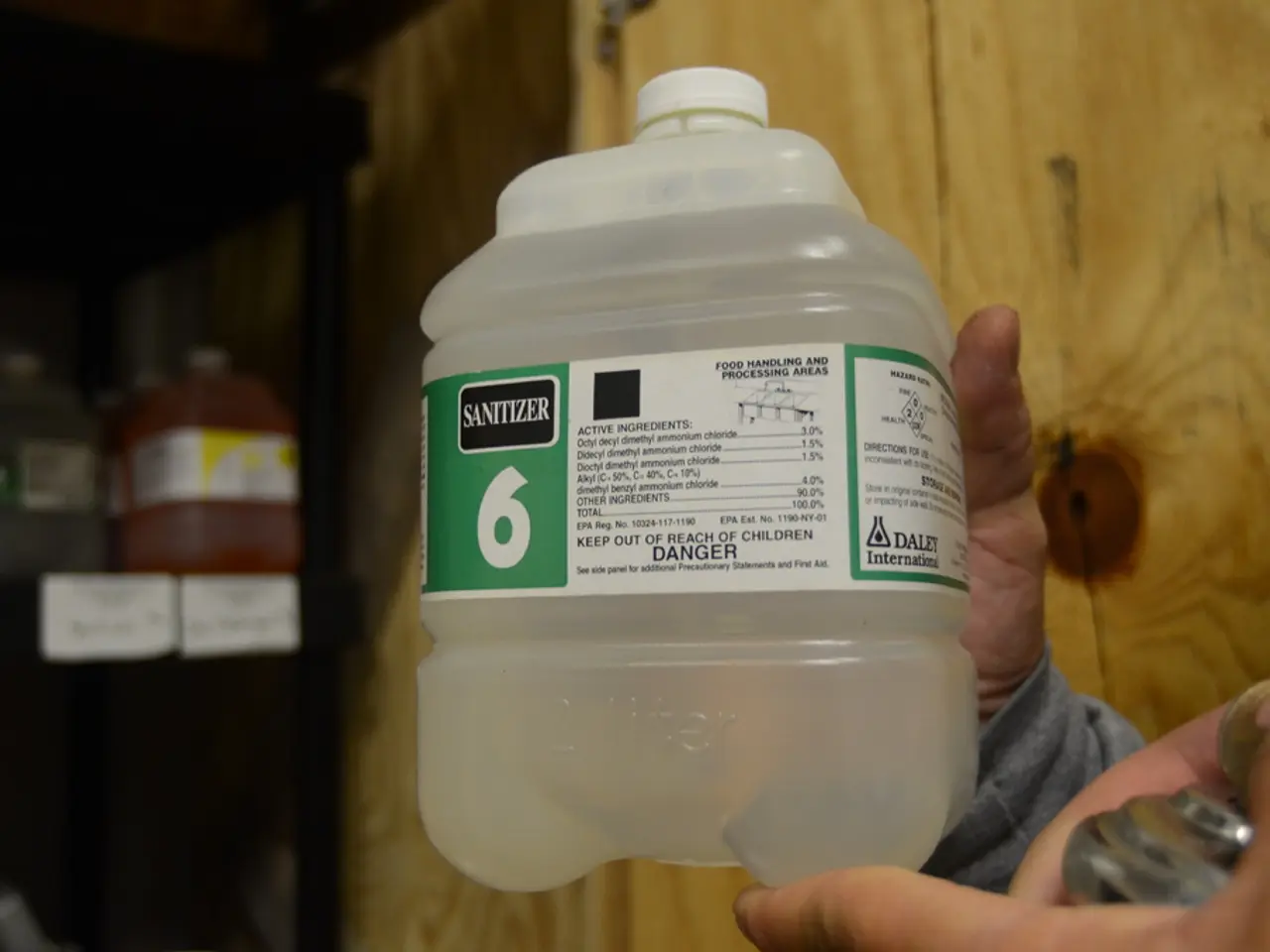Genital herpes symptoms, causes, and treatment explained: Learn about the indicators, underlying factors, and remedies for genital herpes, a sexually transmitted infection.
In the realm of sexually transmitted infections (STIs), herpes stands as a common concern. While both oral herpes (primarily caused by Herpes Simplex Virus Type 1, HSV-1) and genital herpes (primarily caused by Herpes Simplex Virus Type 2, HSV-2, but can also be caused by HSV-1) share some similarities, there are distinct differences.
## Symptoms
Oral herpes, often known as cold sores, typically presents with small, fluid-filled blisters on or around the lips and oral area. These blisters can be painful, itchy, or burn, and they may be accompanied by a fever and sore throat during the initial outbreak. Once the blisters burst, they form scabs that can take several days to heal.
On the other hand, genital herpes manifests as painful blisters or sores on the genitals, buttocks, or thighs. These sores can be itchy or burning and may cause discomfort during urination. Initial outbreaks can be severe, accompanied by fever, headache, and swollen lymph nodes. Subsequent outbreaks may be less intense but can still be painful.
## Treatments
Both oral and genital herpes are treated with antiviral medications such as acyclovir, valacyclovir, and famciclovir. These medications help reduce the severity and frequency of outbreaks. Over-the-counter or prescription topical creams can provide relief from symptoms and may reduce healing time. Pain relievers and good hygiene practices are also essential in managing the condition.
Specific treatments for oral herpes include cold compresses, lip balms or moisturizers with sun protection, and avoiding direct contact with the sores to prevent spreading the virus. For genital herpes, soothing baths or warm compresses, comfortable clothing, and avoiding irritants can help manage symptoms. For frequent outbreaks, daily suppressive therapy may be recommended.
It is important to note that while there is no cure for genital herpes, taking antiviral medication can reduce the likelihood of outbreaks and the risk of transmitting the virus. People can still transmit the virus even if they have no visible symptoms. Prevention measures such as regular STI checks, especially after having sex with a new partner, can help reduce the risk of transmission.
In conclusion, while both conditions involve painful blisters, the locations and specific treatments can differ. Early treatment with antiviral medications can significantly reduce symptom severity and outbreak frequency. It is crucial to practice safe sex, get regular STI checks, and maintain good hygiene to manage herpes and prevent transmission.
- Ulcerative symptoms often appear as small, fluid-filled blisters, characteristic of both oral herpes and genital herpes infections.
- AQ (acyclovir) is one of the antiviral medications used to treat both oral and genital herpes, helping to reduce the severity and frequency of outbreaks.
- Degeneration of skin cells can lead to the sores caused by herpes, creating an uncomfortable and potentially painful experience for individuals affected.
- Bipolar management involves ensuring individuals with herpes understand the importance of taking medication regularly, both to manage their symptoms and to prevent transmission.
- GLP (genital-lung parallel) transmission, although rare, is a potential risk factor for genital herpes, where the virus is transmitted to the lungs through oral-genital contact.
- Obesity and type 2 diabetes are associated risk factors for the development and recurrence of genital herpes, elevating the importance of managing these conditions.
- Type 1 diabetes and hepatitis have not been directly linked to an increased risk of herpes, but maintaining good health and wellness is essential for overall immune system support.
- Macular degeneration in the eye is not a symptom or known side effect of herpes, but seeking regular health-and-wellness check-ups is important to catch other potential health issues early.
- Migraine headaches are not caused by herpes, but management of mental-health conditions such as depression, often a symptom of chronic illness, can help improve overall quality of life for those living with herpes.
- Colitis, inflammation of the colon, is not directly caused by herpes, but individuals with herpes may experience fluctuations in their symptoms due to underlying intestinal inflammation.
- Dry skin care and warts are not related to herpes, but the science behind sexual-health, mental-health, and skin-care education can help individuals make informed choices to maintain their overall health.








